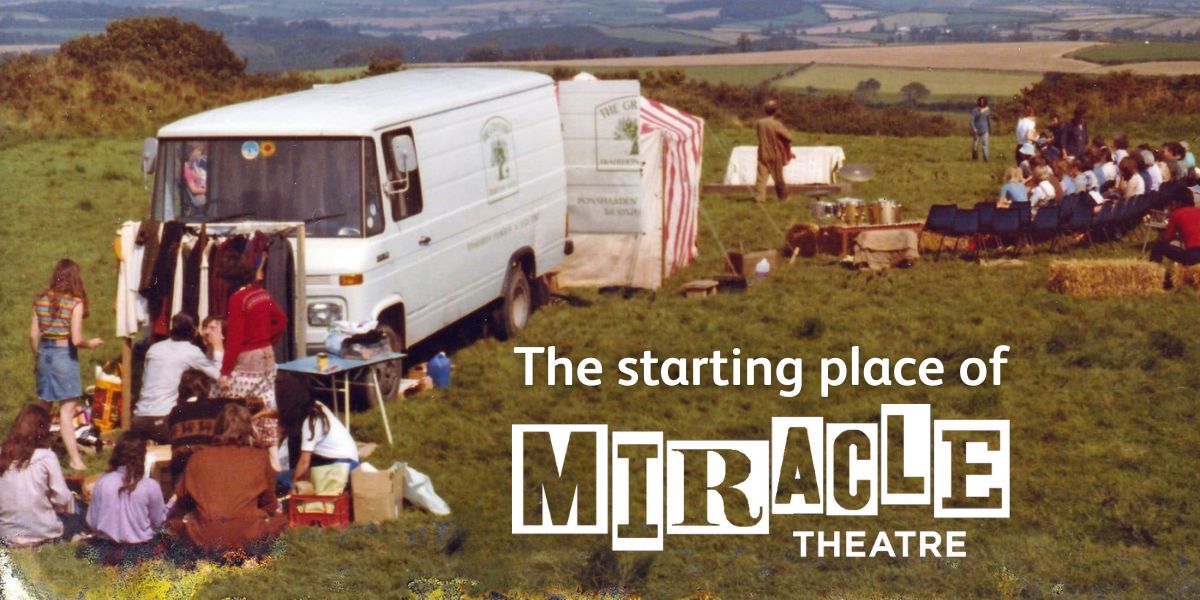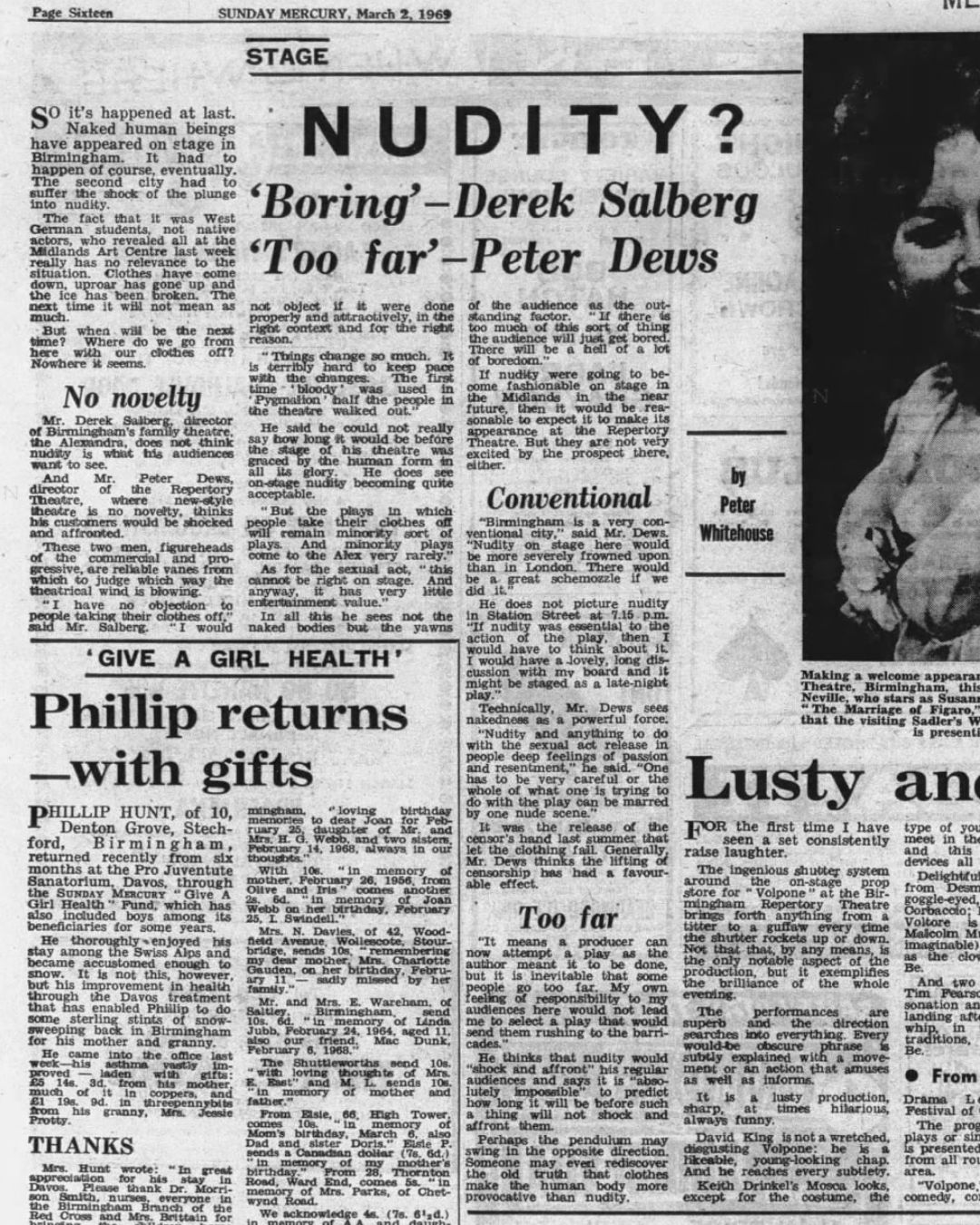

October 20 2025
When Bill Scott went to the University of Birmingham to study drama in the late 1960s, he expected creativity and performance. What he found instead was an academic course that treated theatre as theory rather than practice. He was discouraged from joining the drama society, in case it distracted from his studies.
In 1969, frustrated but undeterred, Bill and several fellow students decided to take matters into their own hands. They organised an International Drama Festival at the Cannon Hill Arts Centre, inviting theatre groups from across Europe, including Switzerland, Germany, and Poland. The event made national headlines when the German company took to the stage, stripped off their clothes, and began hurling fish at the audience before splattering red paint across the walls. The resulting outrage — with one councillor branding Birmingham University “a sink of iniquity” and demanding the Arts Centre’s closure — shocked the city but thrilled the students. For Bill, the scandal was a turning point. It confirmed his instinct that theatre should not be confined to dusty analysis, but alive, provocative, and grounded in experience. He finished his degree and turned his gaze back to the Cornwall, determined to create theatre that spoke directly to people.
The professional theatre scene in the Southwest in the 1970s was sparse. The Hall for Cornwall had not yet replaced the City Hall, which as the home of the Fat Stock Show, was as likely to be filled with cattle as theatregoers! The Princess Pavilion staged plays once a week in the summer, mainly for holidaymakers. Even the world-renowned Minack Theatre, hosted mostly amateur productions, with professional companies appearing only occasionally after the Bristol Old Vic’s visit in 1951.
In this creative vacuum, a new kind of theatre began to take root. Footsbarn, founded in the early 1970s near Liskeard, showed that imaginative, grassroots theatre could flourish in the unlikeliest of places — born, quite literally, in a barn. Their touring model was bold and accessible, taking physical, visual theatre to fields and village greens across Cornwall and beyond. But it was also precarious, relying on constant travel, community goodwill, and modest ticket sales to survive. Footsbarn’s uninvited innovation and artistry was not universally appreciated and eventually, the company left Cornwall for France, seeking a more welcoming environment in which to continue their work.
Inspired by their spirit, Bill founded Miracle Theatre in 1979. Like Footsbarn, Miracle was built on the belief that theatre should be accessible to everyone – not just city dwellers. Miracle performed in medieval playing places, community halls, gardens, beaches, and cliff tops, often in all weather, with little more than a van, a few portable lights, and a band of dedicated actors. It was a model that celebrated imagination and freedom, but also demanded resilience.
The following year, Kneehigh Theatre was founded with a similar mission: to create bold, physical storytelling rooted in Cornwall’s identity. These three travelling theatre companies found an audience in rural communities and went on to transform Cornwall’s cultural landscape.
For Bill, Miracle’s beginnings were about more than just making shows. They were about proving that Cornwall could sustain its own creative ecosystem — one that gives young people access to the arts and supports the artists who choose to live and work here. More than forty-five years later, those values remain at the heart of Miracle’s work. The company has created over sixty original productions, touring to hundreds of communities across Cornwall and beyond, and nurturing generations of performers, writers, and makers. Today, through Miracle’s initiative Small Miracles, the company continues Bill’s vision — creating workshops and opportunities for young people to access theatre, find their voices, experiment, learn, and bring theatre to life, ensuring that Miracle’s spirit of creativity, adventure, and accessibility continues to thrive.
